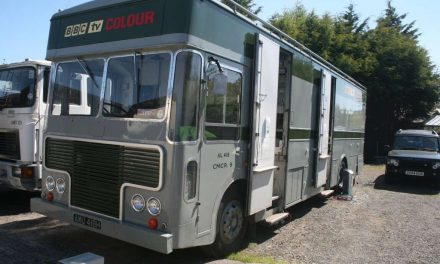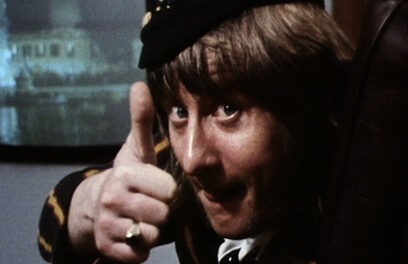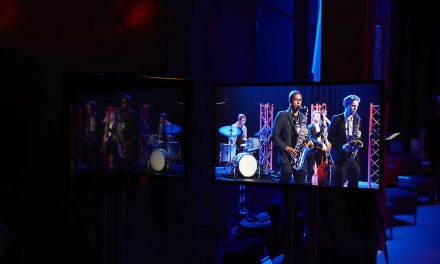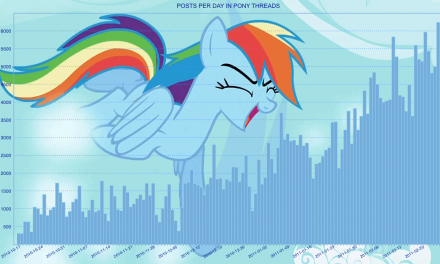- https://rts.org.uk/article/euryn-ogwen-1943-2021
- https://nation.cymru/news/giant-of-welsh-broadcasting-euryn-ogwen-williams-passes-away/
For anyone who had dealings with Euryn, he was also a stupendously positive human being. To have a chat with Euryn was to enjoy the brilliant sunshine of his undivided attention, and to emerge re-energised and with a new view on whatever project or aspect of life that had been raised. In Welsh broadcasting – an often frustrating and difficult area of cultural life – Euryn lifted the clouds, gave confidence and made the seemingly impossible, possible. These gifts were perhaps most apparent at the beginning of S4C, and it this time that this interview recalls.
PART II
S4C was launched on November 1, 1982 – the night before Channel 4’s launch – and Euryn Ogwen, as head of programmes was responsible for constructing the new channel’s first hour. I was ten years old, and watching the first hour in the office of my father’s television company, Screen ’82, in Aberystwyth. 30 years to the day, Euryn and I met at the National Screen and Sound Archive in Aberystwyth to watch the channel’s first hour once again, and to decipher what Euryn called, it’s ‘hidden messages’. The conversation that follows seeks to dig beneath the surface of the first hour to analyse the roots of the channel, and to reflect on the thinking, the preparation, and the random elements that led to the composition of the first hour of S4C.
This second instalment takes us from the first few seconds of S4C to discuss in vision presenters, the importance of animation to S4C, and the thorny issue of advertising…
Euryn Ogwen Williams: It’s obvious that every word there has been through the mill. It was obvious to us that the real challenge was to persuade the non-Welsh speakers that they were welcome. Also, that we emphasised the effort of different broadcasters; that there was a homely feeling. It was something we discussed a lot; it was natural for Owen, but we had to discuss it, because the decision to create something homely would become a problem in time, indeed it was and still is. The inclusive element – the message here – was that we were all part of this, whether you spoke Welsh or not. That the whole thing was Welsh rather than only Welsh-speaking.
DSJ: Watching it now, one must consider the television grammar of the time. The slowness of movement between programmes, in the years before paintbox. Perhaps because of that this sounds a bit like a political speech, that there’s more at stake than a television channel. One could even say – thinking of the semiotics of the evening – that Owen Edwards’ slightly RP accent was some sort of sign as well; the kind of person who could bring things together in the establishment world of broadcasting?
EOW: Owen was educated in at a public school, and his English was naturally more RP, and Owen knew the English better than I did, and the rest of us, because he had been working for the BBC in London, and in a way, this was a political speech, and in its time, it was very important that it was. This was such a political time. This was the declaration that all the revolution and talking was at an end, and that this was the start. Owen loved public speaking, and perhaps if someone else had been Chief Executive, they would have thought of a better way of doing it, but for Owen it was crucial to stand on the stage.
DSJ: Was Owen Edwards a slightly haughty figure who stood aloof from Welsh life to some extent, but that his presence had been crucial to persuade London to agree with S4C’s plans?
EOW: I think Owen was the only possible person for that role, because of his credibility amongst the English and the politicians, they accepted that he was a nationalist, but not a supporter of any political party. He was the acceptable face of the nation for outsiders. He was from a high-born tradition – his father and his grandfather [1] – but there was an expectation that he should be doing something like this, so he could speak as if he were Lord of the Manor. He wasn’t a programmes person at all, but he did have a good feel for what the people liked. He knew if we had commissioned something nobody would like.
DSJ: Amongst the people who ran broadcasting?
EOW: No, the common people. He had an instinct – like his father to an extent with the Urdd – he had the common touch, and he could also rise above it.
DSJ: He almost seems like a Welsh prince of the time! Outside politics, Oxford, his father and grandfather’s inheritance – a neutral figure perhaps?
EOW: The impression he gave was that he was neutral, yet at the same time he was very well thought of amongst the Welsh audience.
DSJ: What about the decision to put the Welsh language at the start of the speech – was there any question of that? The logo, after all, started with ‘Wales’?
EOW: True, but there was no question. It was totally clear, but in a way the logo helped, because we had shown that there was ‘something coming for you’, by using the logo. Anybody who had thought that everything was to be in the Welsh language knew from the very start that that wasn’t the case.
DSJ: Forwards?
EOW: Yes!
DSJ: Is there something to say about Sbec here?
EOW: I think Sbec is one of the most significant things, and its significance has not been fully recognised over the years. The other important word was ‘partnership’; S4C wasn’t a new body or institution, but a partnership. Sbec was massively important, and Sbec was one of Owen Edwards’ deals. I don’t remember how the title was decided, – one of the think tanks came up with it – but Ann Beynon led Sbec.
The agreement went that TV Times – which happened to be the most popular magazine in Wales – was completed under the agreement with the IBA, to give on page in Welsh in its ‘Wales and the West’ issue. This upset TV Times because one whole page cost them a lot of money in terms of lost advertising, especially in the West. It upset people in the West that it was there at all, but it had to be there because that was the franchise. The deal Owen made was that if TV Times didn’t have to carry a Welsh page, would they be willing to publish a separate magazine that was only distributed in Wales? And that’s what happened, but I’m not sure how long that agreement held. Most things started to fall apart by 1988, as the new channels came on the scene; Sky was the problem. Whilst you had four channels, Sbec’s arrangement with TV Times was still important, but it was lost in 1988-98. But Sbec’s contribution was massive.

Fig. : Sbec cover with John Ogwen and Dyfan Roberts, actors in the Minafon series. Image source: BBC Cymru. For a comprehensive overview of Sbec covers, see the S4C30 photostream on Flickr.
DSJ: Looking at this page, with S4C’s logo there with Sbec’s it looks like something that’s solid and established, and then there’s the idea of what almost amounts to a national magazine, in a language that has none – and of course after the recent debacle with Y Byd [2] this feels quite contemporary – did it feel like a national magazine? Were there articles in Sbec along with the television listings?
EOW: Certainly. Sbec was quite a large operation. Paddy French ran it, the guy who wrote scurrilous stories about celebrities and the like – he was the one who knew how to put something like this together. He put in a pitch for it, and he won the pitch. I was very conscious that with Sbec we were starting something that had not existed before. A Welsh magazine, with enough English in it to allow people to follow it, with articles, with lots of pictures, glossy, and a circulation of around 300,000.
DSJ: Was there anything similar in Welsh at the time?
EOW: Nothing.
DSJ: Nothing?
EOW: Well, certainly not with that kind of circulation. You had some with a circulation of some hundreds – 800 to 1000 were the circulations of magazines about the pop world and so on. But this was 300,000. And this was years before Golwg. This was the first colour, glossy Welsh language magazine with that kind of circulation. It was massive. And, of course, we got it for nothing!
That was one of the contributions of the campaign at the start; everyone was a little afraid of language issues; we were still able to play the card of ‘it’s important to get this right; the government has gone for this, you must follow suit because one of your companies – HTV – is dependent on the income you get from the government’.
There was something in the Radio Times, but the BBC sulked and all we got were listings, and the only time they carried information was when the programmes had been made by the BBC. That didn’t do Radio Times any favours; I think TV Times increased its circulation in Wales. People got Sbec for nothing!
I don’t know what the price was in comparison with other Welsh magazines of the time. The only other weekly magazine in Welsh at the time was Y Faner. There were other monthly magazines but you had to pay. Sbec was only 50p, and you got all the English material as well! It was a fantastic deal, and only Owen could have made that deal, talking to Bob Phillips, who was chairman of TV Times, and then chairman of the Guardian Media Group afterwards. Bob was the same age as me – younger than Owen – but Owen was very comfortable with anything like that.
DFS: Onwards?
EOW: yes, onwards!
We had found through research that HTV had lost a lot of viewers. People did not like the formal manner of BBC’s programme presentation. We, at S4C, had no idea how many adverts we had, as it happens not many because of a strike by equity against Channel 4, so for a period we had no adverts except for ones like Midland Bank and poor old Emrys Ifans, he came up all the time. But of course adverts were important to us. On top of that the BBC said that they did not want adverts within 3 minutes of the start or end of any BBC programmes. HTV had used in-vision presenters, but had gone off the idea by the end of the 70s, so we decided to reintroduce them, and that the ‘Welsh thing’ would be to put presenter in front of the audience. One was experienced, and the other two entirely new, and we gave them training. They had to be good ad libbers, as they might have to speak for 3 minutes! There was no question of being certain how long the presenter would have to speak. That’s the reason the weather is produced by S4C, we had 25 minutes of news, we did not want to start the next programme until 7.25, and the only way we could fill that time was if we produced our own weather, then a commercial break before 7.30 and then on to the next programme.
It made sense for the presenters to do the weather, because we could not afford a separate weather service, so we went for a map with stuck on symbols, like everyone else at the time. I’m sure we paid something for the actual information.
But that is why we used in-vision presenters, to get some control over the situation, but also because we had found from focus groups that the Welsh audience wanted someone in-vision, and that’s why they feature in the first hour.
DSJ: Why was the audience in favour of in-vision presenters?
EOW: More homely – these are our people. Not some faceless voices in Llandaf.
DSJ: I remember watching the first hour as a member of the audience, in my father’s production company offices – Sgrin ’82 – in Cambrian Chambers in Aberystwyth, and I really felt the emergence of this new space, and of course that one of the things TV presenters do is create that feeling of being in the same space?
EOW: That was totally deliberate – the presenters had no desks.
DSJ: Just like the presenter Paul Coia at the very beginning of Channel 4 – also without a desk – was that usual at the time?
EOW: We were severely judged because of it. Why be so disrespectful? There was anger that we hadn’t made S4C people more important, but that was the intention. Once we had invited people in, then we had to show the little bear, didn’t we? This was the big investment that was made – not Super Ted itself – but in establishing an animation studio. Chris Grace[3] has done a lot on this background, and he drove this policy on, and I made sure he didn’t upset the channel authority when they saw how much he had spent.
DSJ: Why was animation so important to S4C?
EOW: Two reasons. We knew we would need a lot of children’s programmes. The only way to do that in those days was through cartoons. And then there was a philosophical point – if you see something that belongs to you, if you see Super Ted speaking Welsh before anything else, then it makes everything else credible afterwards. We had a problem when BBC offered to buy Super Ted, with a good window so we could show it in Welsh before it went out in English, and we did Wil Cwac Cwac at the same time in order to make the deal work. It gave status to the language for the children in a way.
The second thing was that Newport college of art as it was, bred these amazing animators, and then they all went to London every year. So, one economic justification for S4C’s animation was to turn them back and bring them back to work with S4C. This fit in with our political narrative that we brought industry back to Cardiff that should never have gone to London. S4C was initially a 3-year experiment, but Super Ted more or less made it certain that the channel would survive, because it would have then been very difficult economically to sub-divide the production out to different channels again.
DSJ: Super Ted therefore combines quite a few elements. It combines the political aim of bringing the Anglo-Welsh from Newport into Welsh language culture, it creates something with high production values, perhaps with lower costs than creating a feature film industry, it attracts younger viewers and therefore the audience of the future, it reaches children and therefore fulfils an educational function, with all the status that comes from that. Then at the same time there is the economic bonus of being able to sell Super Ted to countries all over the world with different voice-overs. So S4C creates something with economic, cultural and political value, simultaneously.
EOW: Indeed. We sold Super Ted all over the place. We took the first 40 seconds to Cannes in April 1981, and we sold to 23 countries who were willing to say ‘we’ll have it when it’s ready’. Once it was ready, we would send it over. It reached a point when there was quite a debate between the Inland Revenue and the IBA about the status of our income from Super Ted. S4C’s advertising income was ‘laundered’ by the IBA, and the question was posed should some tax be paid? The decision was that none was paid because we didn’t make more than half a million on the sales of anything. So, we started something called the ‘Broadcasting Trust’ [4] and Super Ted’s income went into that, which still gives grants, so the little bear still supports projects to this day. Super Ted never went into super-profit, but it still creates around £20,000 each year, from a pot of £300,000.
EOW: the whole history of Super Ted is interesting; how we lost the chance to make a lot of money from it, because they wanted to send production to India because it was cheaper, and we refused. That was sometime in the first 10 years, maybe the first five years. It would have been a lot of money.
EOW: This was an oddity – we found this in Cannes, some character, a puppet but being worked by computer; Ianto was the name of the puppet, and I don’t think it lasted longer than the first night!
DSJ: The tone here is very homely, even a bit amateur!
EOW: We had nothing to go in place of the adverts, the only thing we could do was stuff like this. It was HTV who sold the adverts. Because of the actor’s strike, the only way Midland Bank could advertise – and they were S4C’s bank of course! – was to get Emrys Evans, the head of the bank in Wales, and he said ‘I’ll do it!’.
And now we have the advert for the National Eisteddfod – I don’t think we paid for this!
The little money that came in from adverts went into a pot that was then shared according to a formula. It was a complex formula; 17% of all TV advertising income in Britain – so Channel 4 and ITV – went to the fourth channel, and of the sum Channel 4 got 80%, and we got 20%, so 20% of 17%, 3.4% or something like that.
— END OF PART II —
Dafydd Sills-Jones is Associate Professor in the School of Communications at Te Kura Whakapāho, Te Wānanga Aronui o Tāmaki Makau Rau (Auckland University of Technology). Before taking up this post in 2018, he was Lecturer in Media Production Cultures and Director of Postgraduate Studies in the Arts Faculty of Aberystwyth. Dafydd is co-editor of Peter Lang’s ‘Documentary Film Cultures’ book series, is on the editorial board of Media History (Taylor & Francis), The International Journal of Creative Media Research (Bath Spa University), and is a member of the International Association for Minority Language Media Research (IAMLMR).
Web: https://academics.aut.ac.nz/dafydd.sills.jones
Footnotes
[1] Owen Edwards’ father was Sir Ifan ab Owen Edwards, founder of Urdd Gobaith Cymru (Welsh Guild of Youth), and his grandfather was Sir Owen M Edwards, Chief Inspector of Schools with the Welsh Board of Education, and a major Welsh scholar. https://independent.co.uk/news/obituaries/owen-edwards-pioneering-television-executive-and-architect-s4c-2072091.html
[2] Y Byd was a to be a daily national newspaper in the Welsh language, and despite coming very close to gaining the funding it needed from the Welsh government, never came to fruition: http://news.bbc.co.uk/2/hi/uk_news/wales/mid_/7245774.stm
[3] Chris Grace was an innovator in broadcast animation, who “effectively kick-started the animation industry in Wales”: https://awn.com/news/s4c-pioneer-chris-grace-step-down
[4] Ymddiried: The Welsh Boradcasting Trust, still exists and awards grants for professional development in the Welsh language media industries: https://ymddiried.cymru/home/





